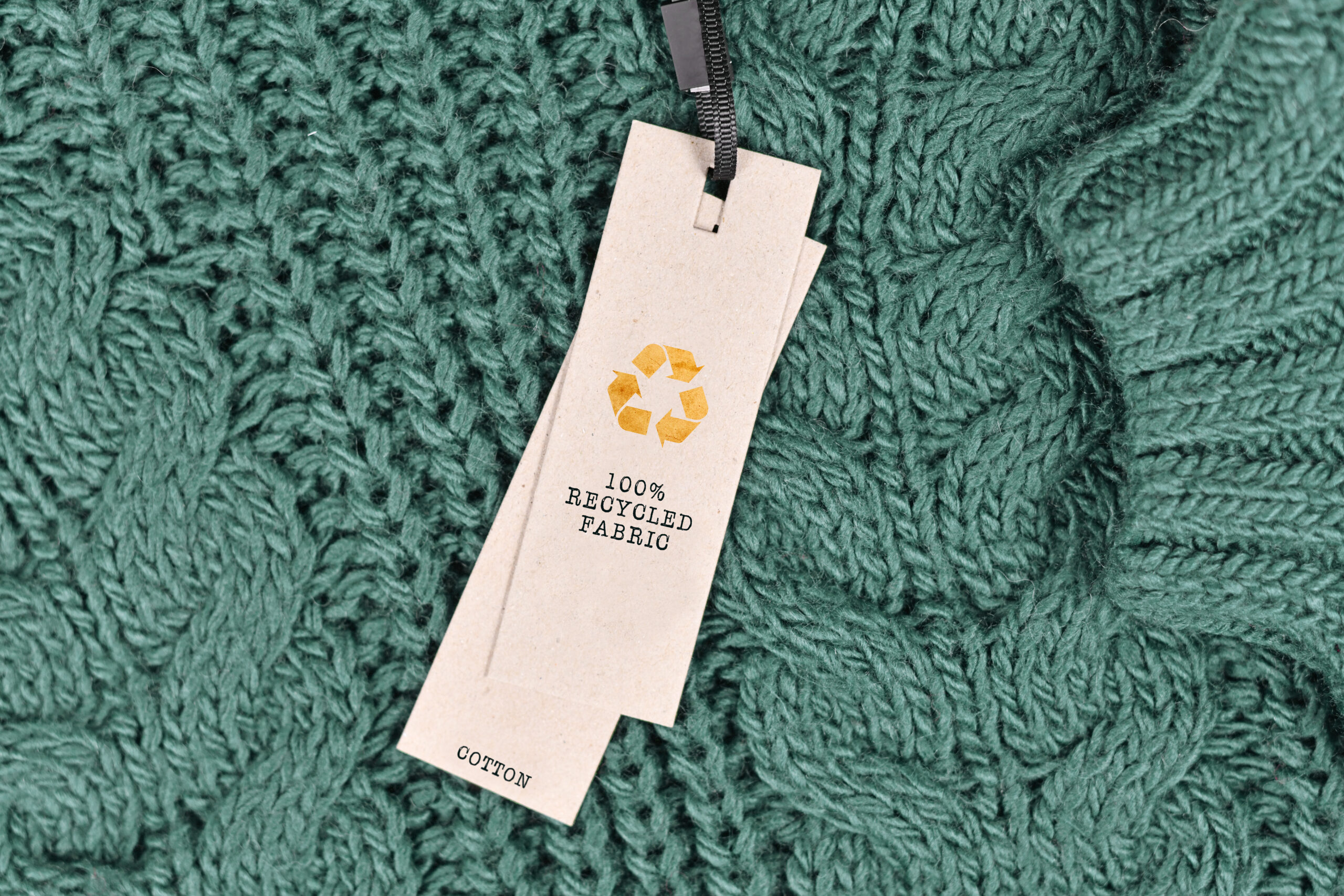Cape Town Sustainable Fashion: Ethical Apparel for a Much Better World
Cape Town Sustainable Fashion: Ethical Apparel for a Much Better World
Blog Article
Stay Ahead of the Curve by Exploring Ingenious Style Patterns
In an industry as vibrant as fashion, remaining in advance includes even more than just adhering to current fads-- it demands an exploration of technology. Smart fabrics, for instance, are transforming garments right into practical masterpieces, while 3D printing is changing style procedures with its personalized, waste-reducing capabilities. As sustainability comes to be a keystone, innovations like environment-friendly products and round style techniques are improving ecological responsibility - Cape Town Sustainable Fashion. Furthermore, the convergence of innovation and fashion advertises a brand-new age of consumer interaction. Exactly how, after that, can these arising patterns redefine the future of fashion, and what ramifications do they hold for brands seeking to flourish in this developing landscape?

Accepting Smart Textiles
In current years, the fashion business has actually witnessed a transformative shift with the combination of clever textiles, an innovative innovation that blends innovation with textile. This evolution represents not only a combination of aesthetics and functionality however likewise a considerable jump in the direction of sustainability and personalization in fashion. Smart textiles, likewise understood as e-textiles, installed innovative electronic devices such as sensing units and conductive strings within the textile, enabling garments to interact with the atmosphere or the wearer.
These textiles are developed to keep track of physiological specifications, such as heart rate or body temperature, offering real-time health and wellness analytics. Beyond health applications, smart textiles are also being made use of for flexible apparel, which can transform shade or pattern in action to environmental stimuli, thus offering a vibrant style experience.
Additionally, the advancement of energy-harvesting textiles that generate power from activity or sunshine is leading the way for self-dependent wearable modern technology. This advancement is attracting environmentally conscious customers and designers aiming to minimize the eco-friendly impact of fashion. As r & d in this area breakthrough, wise fabrics are expected to come to be significantly widespread, improving the landscape of modern fashion with their multifunctional abilities.
The Rise of 3D Printing
Changing the production landscape, 3D printing has actually emerged as a game-changer in the garment industry. This sophisticated innovation has actually made it possible for developers to push the borders of creative thinking, producing complex and customized garments that were formerly unbelievable. By leveraging digital layout and additive production, 3D printing promotes the development of intricate geometries and patterns, permitting developers to experiment with new textures and frameworks.
A noteworthy benefit of 3D printing in fashion is its ability to create on-demand, minimizing waste and reducing supply requirements. This performance not only optimizes production procedures however also permits quick prototyping, enabling developers to bring their visions to life in a shorter timeframe. Additionally, 3D printing supports personalization somewhat unmatched by traditional techniques, using one-of-a-kind layouts and tailored fits customized to specific consumer choices.
The surge of 3D printing has additionally democratized fashion, making it easily accessible to arising developers that can now fabricate high-quality pieces without substantial financial investment in conventional manufacturing facilities. As modern technology remains to advancement, the fashion business is positioned to harness the complete possibility of 3D printing, discovering brand-new materials and strategies that will undoubtedly redefine how style is conceived and produced.
Sustainable Fashion Innovations
As the style industry comes to grips with the pressing need for ecological responsibility, lasting style developments have actually arised at the leading edge of transformative change. The growing awareness of eco-friendly effect has fueled a shift in the direction of more eco-conscious practices and products. Brands and designers are currently prioritizing sustainability, including techniques that minimize waste and lower carbon footprints.
One significant development is the increase of round fashion, which stresses recycling and upcycling to extend the lifecycle of garments. This strategy not just decreases waste however additionally urges consumers to adopt an extra mindful approach to garments intake. In addition, using sustainable materials, such as organic cotton, hemp, and recycled polyester, has gotten grip. These materials need much less water and power throughout production, significantly reducing environmental influence.
An additional advancement depends on the fostering of cutting-edge dyeing strategies that make use of natural dyes or waterless procedures, consequently lowering the vast amounts of water and chemicals generally used in textile dyeing. Moreover, improvements in biotechnology have resulted in the development of lab-grown natural leather and materials, providing eco pleasant and cruelty-free choices to standard materials. With these pioneering efforts, the apparel industry this link is making purposeful strides in the direction of an extra sustainable future.

Tech-Integrated Garments
Tech-integrated clothing stands for a revolutionary fusion of style and technology, reshaping how individuals engage with their apparel. This ingenious domain name is marked by the addition of wise textiles and embedded digital parts, improving both functionality and aesthetic allure. From fitness trackers installed in sports apparel to heated jackets regulated using mobile phone applications, tech-integrated apparel uses consumers extraordinary convenience and versatility.
Pioneering brands are driving this pattern, concentrating on developing garments that respond to environmental stimulations or user commands. For example, some garments can change shade or pattern in reaction to temperature shifts, while others incorporate biometric sensing units to keep an eye on health and wellness metrics like heart price or tension levels. The seamless combination of modern technology right into textiles also prolongs to ecological sustainability, with initiatives to create self-cleaning textiles or garments that adapt to weather, thus decreasing the demand for several layers.
Additionally, the development of wearable click for source technology is not just limited to garments yet prolongs to devices like watches and eyeglasses, further widening the scope of tech-integrated fashion. As the market remains to site introduce, the capacity for modification and customization in garments grows, supplying consumers special, tech-enhanced fashion experiences that cater to their private requirements and preferences.
Future of Virtual Style
In the last few years, the future of virtual fashion has arised as a transformative pressure within the market, leveraging innovations in electronic innovation to redefine just how fashion is produced, experienced, and taken in. By incorporating increased truth (AR), virtual reality (VR), and 3D style devices, developers can currently craft immersive and interactive experiences that go beyond standard fashion borders. Online style enables the production of garments that exist only in digital environments, offering countless possibilities for development without the constraints of physical manufacturing.
This electronic shift not only presents opportunities for creative expression but likewise addresses sustainability concerns fundamental in standard style techniques. Cape Town Sustainable Fashion. By getting rid of the need for physical resources, online fashion decreases waste and reduces carbon footprints. Moreover, the increase of digital style lines up with the boosting customer demand for individualized and distinct experiences, as online garments can be personalized and tailored to individual choices easily

Verdict
The fashion market's future lies in the integration of cutting-edge modern technologies and sustainable practices. Virtual fashion is positioned to redefine consumer communications.
In recent years, the style sector has actually experienced a transformative shift with the integration of clever fabrics, an innovative advancement that blends technology with textile.As the fashion market grapples with the pressing requirement for ecological responsibility, lasting style innovations have arised at the forefront of transformative change.In recent years, the future of online fashion has actually emerged as a transformative force within the market, leveraging innovations in digital technology to redefine just how fashion is created, experienced, and eaten. The surge of virtual fashion aligns with the raising customer demand for one-of-a-kind and personalized experiences, as virtual garments can be tailored and customized to individual choices with simplicity.
The style industry's future lies in the integration of innovative innovations and sustainable practices.
Report this page